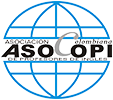Education in languages and sociocultural phenomena
Coordinator : Edgar Lucero Babativa
Co-coordinador: Andrea Muñoz Barriga
Co-coordinador: Yamith José Fandiño Parra
Contact : asocopisigs@gmail.com
Education in languages and sociocultural phenomena
The special interest group of ‘Education in languages and socio-cultural phenomena’ embraces a field nourished by various disciplines, among which psychology, sociology, linguistics, pedagogy, and didactics stand out. These disciplines bring about implications in the ways in which communicative, pedagogical, and socio-cultural knowledge is assumed in various contexts. This subject of study requires a transdisciplinary perspective that allows open and continuous dialogue among the formative, cultural, and linguistic-discursive dimensions, in which language and communication become essential components to constituting human beings and enabling them their condition of humanity. On the one hand, we assume language education as an intentional and systematic process of knowledge, values, practices, and artifacts that support social interaction and personal development. For its part, we understand culture as a dense space of symbolic and ideological exchanges, construction of senses, and circulation of representations and tensions. Within culture, education, language, and communication are points of intersection of intersubjectivities. In that framework, language and communication are placed in critical perspective to allow the decipherment of concealments that produce the discourses of power. In this way, this special interest group does not remain in the merely declarative area of knowledge; essentially, it challenges and transgresses the status quo to facilitate and mobilize new ethical-political, epistemic, discursive, and cultural orders.
Purpose of the SIG and domains of Inquiry
The special interest group"Education in languages and sociocultural phenomena" articulates academic-research activities, processes, and practices based on the formation of a multifaceted research community (bachelor's, master's, and doctoral programs) and circles of critical reflection (dialogical-reflective encounters). To
position and strengthen the formative bets and agendas of the group, this community, and its circles manage their operation through articulations and agreements with academic networks, professional associations, communities of practice, observatories, study centers, research groups, and secretariats of education, among others. These articulations and agreements may give rise to the constitution or development of multi-site integrating projects oriented towards socio-educational action. Multi-situated integrative projects are a type of study that invites a group of researchers to address the same research problem through the concerted construction of similar theoretical, methodological, and analytical frameworks. These look to achieve common research objectives (integration) through a dissertation of data from participants or communities located in multiple contexts (multi-situationality). Among other purposes, these projects seek to design, implement, and evaluate joint research studies that foster participatory action projects, case studies, systematization of experiences, educational interventions, concentrated practices, territorial missions, community dialogues, social transfers of knowledge, etc.




